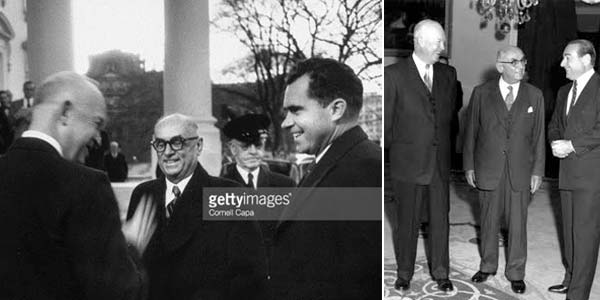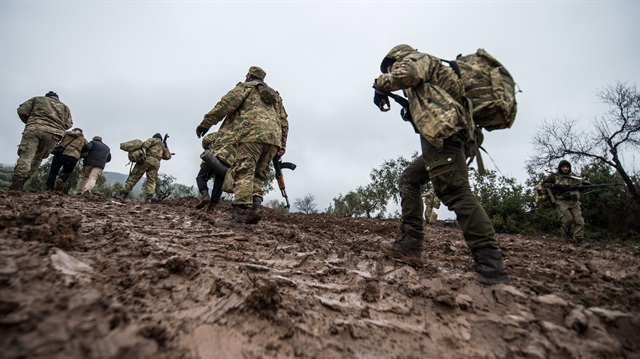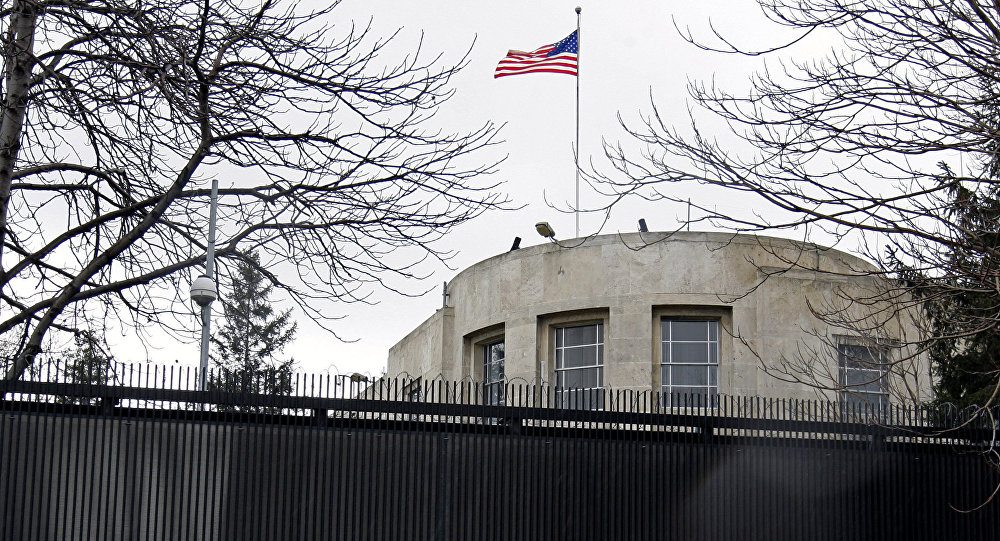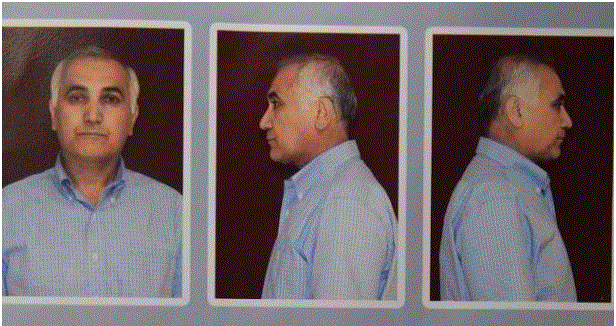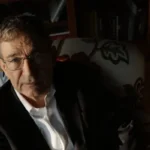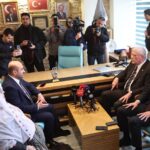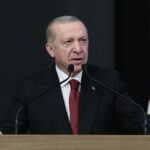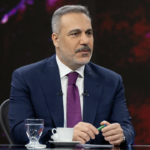In these circumstances it is clear that the main element of any United States policy toward the Soviet Union must be that of a long-term, patient but firm and vigilant containment of Russian expansive tendencies. It is important to note, however, that such a policy has nothing to do with outward histrionics: with threats or blustering or superfluous gestures of outward "toughness." … The Russian leaders are keen judges of human psychology, and as such they are highly conscious that loss of temper and of self-control is never a source of strength in political affairs. They are quick to exploit such evidences of weakness. For these reasons, it is a sine qua non of successful dealing with Russia that the foreign government in question should remain at all times cool and collected… (1)
In the previous article I focused on what Russia’s renewed regional stature means for Turkey. Now I want to turn to Turkey’s side of the issue. Today, Turkey’s economy is more industrialized and productive than Russia’s (2), but Turkey is poor in cash-producing natural resources such as oil or gas, has only half of Russia’s population, and, despite its membership in NATO, is at most a middling power in the international system. Turkey’s military capacities, both in terms of organization and technology, have been greatly improved in the past ten years, but are far from being on the same level as Russia. And then there’s the issue of nuclear weapons, which Turkey does not have. As many are aware, the U.S. has nuclear weapons in İncirlik AFB near Adana, but they are strictly controlled by the U.S. The U.S.’s placement of nuclear weapons in İncirlik towards the end of the 1950s pushed the USSR to attempt spiriting similar weapons into Cuba in 1962, sparking the Cuban Missile Crisis.
Since WWII, the U.S. had acted as an “offshore balancer” to Soviet power for Turkey. Following the disastrous 1877-1878 Russo-Ottoman War (the ‘93 Harbi), the search for a Great Power ally became a major concern of Ottoman decision-makers because it had become clear that, in the event of yet another conflict with a hostile Great Power, Ottoman sovereignty would be at stake. In 1878, only the threat of a broader war with the European powers prevented St Petersburg from assuming control over the Ottoman Empire. Subsequently, concern for Ottoman sovereignty was a main factor which drove the Committee of Union and Progress leadership to approach all of the European Great Powers for an alliance in the weeks before the outbreak of World War I, an effort which resulted in a secret agreement between the Ottoman (CUP) government and the German state (the Wilhelmine empire) in early August 1914. Many things can be said about that agreement, but in the end German aid did help the Ottomans preserve their sovereignty for another four years, even though it then took an extra three years of war (the 1919-1922 Turkish “National Struggle”) to finally consolidate that independence.
The 1920s and 30s, and the regional political instability following WWI, gave the Republic of Turkey (as the Ottoman state’s successor) a two-decade respite. But the first three years of World War II saw the Nazis force Bulgaria into vassalage (1st March 1941), and then rapidly invade Yugoslavia (surrendered 17th April) and Greece (surrendered 30th April); later in 1941-42 they also penetrated as far as Egypt in North Africa, as well as, through their onslaught against the Soviet Union, as far as the foothills of the Caucasus mountains northeast of the Black Sea. While the Nazis were hovering on Turkey’s borders, the Turkish leadership was forced to tread carefully so as to not provoke an attack or an invasion. That prudence would later spark accusations that Turkey had tried to play up to whatever side looked to be heading towards victory, but the reality was that Turkey’s military was in no way prepared for the nature of WWII fighting. The basic reason was that Turkey still had no industry to speak of when the war broke out in 1939 (3).
The waning months of WWII then saw the re-emergence of the ancient Russian threat to Turkish sovereignty, but it wasn’t until August 1946 that the Truman Administration became convinced of Turkey’s vital role in U.S. global security (4). That development would result in the Truman Doctrine of March 1947, Turkey’s inclusion in the Marshall Plan, and eventual Turkish accession to NATO in early 1952. Throughout the Cold War, U.S. military power backed Turkey’s front-line status in the effort to contain Soviet influence, despite periodic political differences between Ankara and Washington.
The attitude displayed by the Obama Administration over the past four years, in retrospect, may be the first time since WWII that a U.S. administration has declined to resist Russian incursion into Turkey’s immediate region (5). So if the U.S. abandons its offshore balancer role, Turkey has no choice to but to behave cautiously, as it did when the Nazi armies were on its borders during that last massive war among the Great Powers. The assassination of Russia’s ambassador to Turkey will not result in a conflict, but combined with the U.S.’s regional paralysis, the immediate Turkish future looks Russian.
(to be continued)
NOTES
(1) George F. Kennan as “X,” “The Sources of Soviet Conduct,” Foreign Affairs, July 1947. pp. 575-576. https://en.wikisource.org/wiki/The_Sources_of_Soviet_Conduct.
(2) Anyone who has seen St. Petersburg’s wharf areas can easily understand how paltry Russia’s industrial production is. I saw firsthand in 2011 that there was almost nothing going on in what should have been a bustling port. My parents also saw St. Petersburg in mid-2015 and remarked on how quiet the dockyards were. On the eve of WWI, St. Petersburg was easily Russia’s most industrialized area. Despite Stalin’s murderously enforced development of heavy industry during the 1930s, and then relative post-WWII prosperity in the 1950s, Russian industry has remained anemic. Multiple factors apparently contribute to that result, including weak, non-transparent state institutions, corruption, and dependence on resource extraction.
(3) One of the most disturbing facts of WWII has to do with the Eastern Front, where the most brutal, destructive, and deadly fighting of WWII took place. If Stalin had not forced heavy industrialization onto Soviet society in the 1930s, an effort which resulted in mass famine and which historians estimate cost 10-20 million lives, the Soviets would not have had the productive capacity to resist the Germans. Turkey’s leadership chose not to employ Stalin’s methods in the effort to industrialize, and instead developed a mix of policies, both statist and capitalist, intended to incentivize industrial development. In 1939 that process was still in its infancy.
(4) See Melvyn P. Leffler’s “Strategy, Diplomacy, and the Cold War: The United States, Turkey, and NATO, 1945-1952,” The Journal of American History, Vol. 71, No. 4, March 1985. pp. 807-825. Leffler’s article is possibly the single most important analysis that has been written on Turkish-American relations.
(5) The infamous letter sent by U.S. President Lyndon Johnson to Turkish Prime Minister İsmet İnönü in 1964 had suggested that the U.S. or NATO might not come to Turkey’s aid if Turkey took actions that upset the USSR without U.S. approval. See: http://www.cyprus-conflict.org/materials/johnsonletter.html.
Yazıyı beğendiysen, patronumuz olur musun?
Evet, çok ciddi bir teklif bu. Patronumuz yok. Sahibimiz kar amacı gütmeyen bir dernek. Bizi okuyorsan, memnunsan ve devam etmesini istiyorsan, artık boş olan patron koltuğuna geçmen lazım.
Serbestiyet; Türkiye'nin gri alanı. Siyah ve beyazlar içinde bu gri alanı korumalıyız. Herkese bir gün gri alanlar lazım olur.




